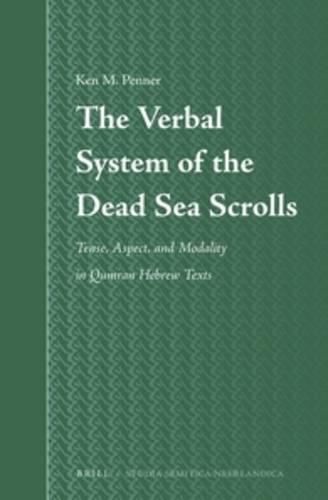Readings Newsletter
Become a Readings Member to make your shopping experience even easier.
Sign in or sign up for free!
You’re not far away from qualifying for FREE standard shipping within Australia
You’ve qualified for FREE standard shipping within Australia
The cart is loading…






In The Verbal System of the Dead Sea Scrolls Ken M. Penner determines whether Qumran Hebrew finite verbs are primarily temporal, aspectual, or modal.
Standard grammars claim Hebrew was aspect-prominent in the Bible, and tense-prominent in the Mishnah. But the semantic value of the verb forms in the intervening period in which the Dead Sea Scrolls were written has remained controversial. Penner answers the question of Qumran Hebrew verb form semantics using an empirical method: a database calculating the correlation between each form and each function, establishing that the ancient author’s selection of verb form is determined not by aspect, but by tense or modality. Penner then applies these findings to controversial interpretations of three Qumran texts.
$9.00 standard shipping within Australia
FREE standard shipping within Australia for orders over $100.00
Express & International shipping calculated at checkout
In The Verbal System of the Dead Sea Scrolls Ken M. Penner determines whether Qumran Hebrew finite verbs are primarily temporal, aspectual, or modal.
Standard grammars claim Hebrew was aspect-prominent in the Bible, and tense-prominent in the Mishnah. But the semantic value of the verb forms in the intervening period in which the Dead Sea Scrolls were written has remained controversial. Penner answers the question of Qumran Hebrew verb form semantics using an empirical method: a database calculating the correlation between each form and each function, establishing that the ancient author’s selection of verb form is determined not by aspect, but by tense or modality. Penner then applies these findings to controversial interpretations of three Qumran texts.